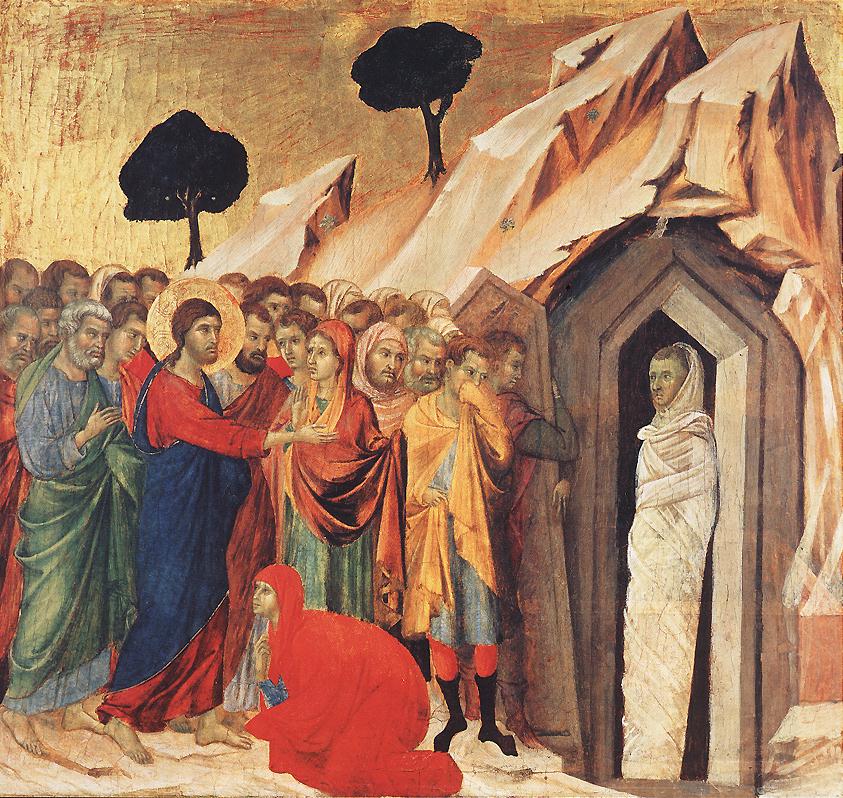
March 26, 2023; John 11:1-45; The 5th Sunday of Lent
Martha, Mary, and Lazarus were close friends of Jesus. When Jesus visits Martha and Mary after the death of Lazarus in today’s gospel, the first words that Martha says to him are important. She says, “Lord, if you had been here, my brother would not have died.” Now we can be confident that this was not the first time that Martha used these words. During the weeks or months of Lazarus’s sickness, she thought several times, “If only Jesus were here, he would lay his hands on my brother, as he did to so many other sick people, and Lazarus would be healed.” Martha repeated these words at Lazarus’s death, very possibly with anger. “Where is Jesus? Why isn’t he here? His presence could have made such a difference.” When Lazarus was buried, and the days afterward, (the gospel says that Jesus arrived four days after the burial), we can be sure that each of those days and perhaps several times during each day, Martha said to herself, “If only he would have come. If only. My brother would still be alive.” So we should not be surprised that the first words Martha says to Jesus are “Lord, if you had been here.” Martha was fixated on the past. This is why the first words that Jesus says to Martha turn her around to the future. He says, “Your brother will rise.” Then Jesus and Martha have a conversation about the resurrection on the Last Day and Jesus being the resurrection. Then Jesus calls Lazarus forth from the tomb. But all of this happened because Jesus was able to turn Martha from her regret about the past towards the good things that still could happen.
Now this turning from the past is an essential part of being a disciple of Jesus because there are many times in our lives when the past can dominate us. When we lose someone we love in death, we can be caught up in many questions: “Why did this have to happen? If only we could have found other medical treatment. Why did Jesus seem absent when my loved one died?” When we make serious mistakes in our lives, those mistakes can control us: “Why did I ever take this job? If only I had pursued an advanced degree after college. Why did I not see all the signs that my marriage was in trouble?” Hurt has the ability to paralyze us. We end up repeating over and over: “I can’t believe she did that to me. I will never forgive him for what he said that night.” Because it is so difficult to let go of a loss, a mistake, or an offense, we end up holding on to these things, reliving them over and over. But this does not heal us. It only cripples us. We become creatures of the past, concerned about understanding or somehow fixing what had happened. But this is an impossible task because the past is past. It is no more.
That is why when we find ourselves fixated on the past, we, like Martha, must allow Jesus to turn us around. We must draw upon his words and his strength to focus instead upon the blessings of the present and the good things that still may come to us. Making this turn does not answer all of our questions nor does it reveal at once what good things the future may hold. But at least it points us in the right direction. And because Jesus walks with us, we believe that that direction leads to future blessings, that we are moving to resurrection and new life.

Thank you Fr. Smiga!
Yes, so much agree that Jesus is not the road or path to blessing, but Jesus is THE blessing, the goal, that which is the only blessing that really does matter. It is him – it is Someone, not some-thing. And this is what ultimate heaven is – not a wonderful place and existence of joy but being with God – nothing could come close to this. If heaven is anything, it is God.
George